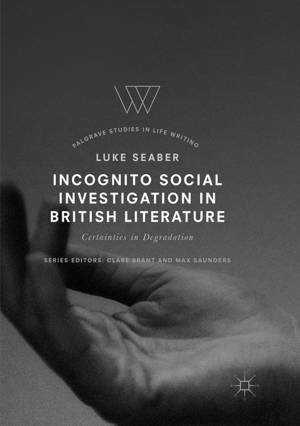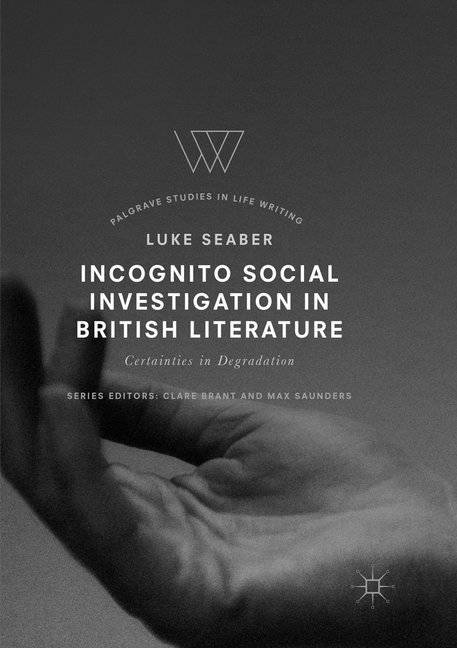
En raison d'une grêve chez bpost, votre commande pourrait être retardée. Vous avez besoin d’un livre rapidement ? Nos magasins vous accueillent à bras ouverts !
- Retrait gratuit dans votre magasin Club
- 7.000.000 titres dans notre catalogue
- Payer en toute sécurité
- Toujours un magasin près de chez vous
En raison de la grêve chez bpost, votre commande pourrait être retardée. Vous avez besoin d’un livre rapidement ? Nos magasins vous accueillent à bras ouverts !
- Retrait gratuit dans votre magasin Club
- 7.000.0000 titres dans notre catalogue
- Payer en toute sécurité
- Toujours un magasin près de chez vous
89,95 €
+ 179 points
Format
Description
This book is the first full critical history of incognito social investigation texts - in other words, works detailing their authors' experiences whilst pretending to be poor. The most famous example is Down and Out in Paris and London, but there has been a vast array of other works in the genre since it was created in 1866 by James Greenwood's 'A Night in a Workhouse'. It draws up a classification of incognito social investigation texts, dividing them into four subtypes. The first comprises those texts following most narrowly in James Greenwood's footsteps, taking the extreme poor as their object of study. The next is the investigation of poverty through walking, for pedestrianism and poverty are fascinatingly linked. The third is that of people looking at relative poverty rather than absolute, where authors take on badly-paid work in order to report on it, which is when incognito social investigation becomes very much something carried out by women. We end looking at those incognito social investigators who settled in the areas they explored.
Not only will this book recover the history of a genre that has long been ignored, however, but it will also offer significant close reading of many of the texts that it places within the tradition(s) it discovers.
Not only will this book recover the history of a genre that has long been ignored, however, but it will also offer significant close reading of many of the texts that it places within the tradition(s) it discovers.
Spécifications
Parties prenantes
- Auteur(s) :
- Editeur:
Contenu
- Nombre de pages :
- 274
- Langue:
- Anglais
- Collection :
Caractéristiques
- EAN:
- 9783319845326
- Date de parution :
- 28-07-18
- Format:
- Livre broché
- Format numérique:
- Trade paperback (VS)
- Dimensions :
- 148 mm x 210 mm
- Poids :
- 340 g

Les avis
Nous publions uniquement les avis qui respectent les conditions requises. Consultez nos conditions pour les avis.






